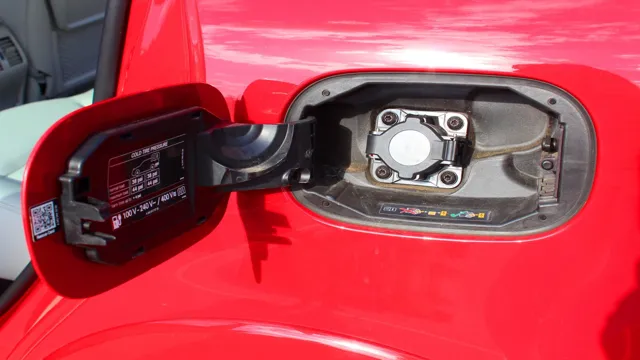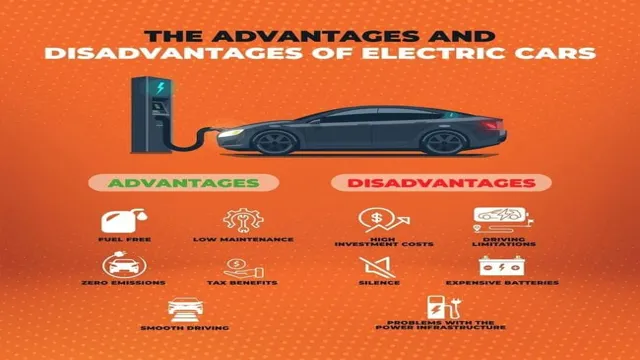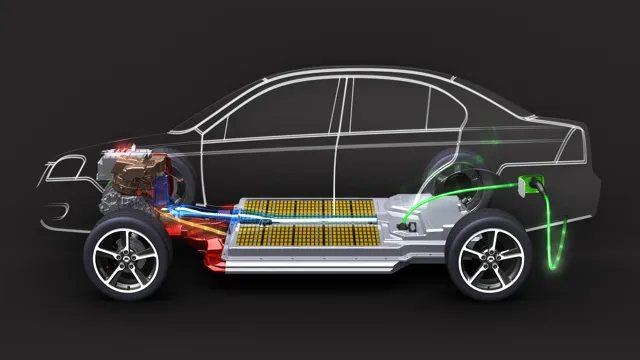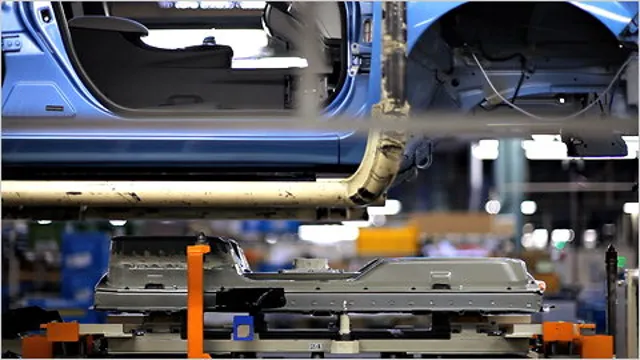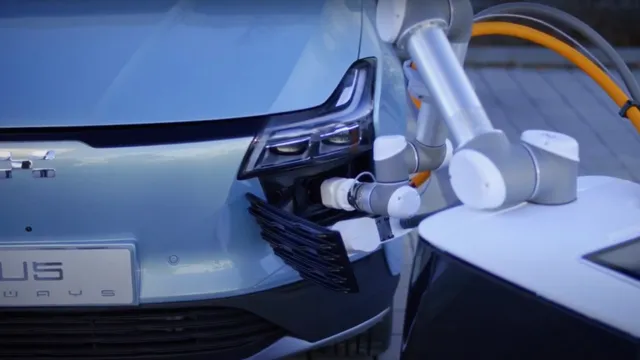Unleashing the Power of Electric Cars: Ensuring Safety in Battery Technology
Electric cars have gained a lot of attention in recent years as a cleaner and more efficient alternative to traditional gasoline-powered vehicles. However, concerns about the safety of electric car batteries have arisen. The question on everyone’s mind is, how safe are electric car batteries? Well, the answer isn’t so simple.
Although electric car batteries are designed and tested to be safe for use, there is always a slight risk of fire or explosion that comes with any battery. However, it’s important to note that the overall safety of electric car batteries is constantly improving as new technologies and safety measures are developed. In this blog, we’ll look at some of the safety features and technologies that are being used to make electric car batteries safer than ever before.
We’ll also address some common misconceptions and concerns about electric car batteries and provide some tips on how to safely operate an electric car. So, buckle up and let’s dive into the world of electric car battery safety!
What Makes Electric Car Batteries Safe?
The safety of electric car batteries is crucial for many reasons, ranging from passenger safety to environmental concerns. One of the main reasons these batteries are safe is because they are engineered with complex safety systems that prevent overheating, overcharging, or short circuits. The batteries also undergo rigorous testing before they are installed in cars to ensure that they are stable and reliable.
Moreover, the cooling system ensures that the temperature inside the batteries is always regulated, which minimizes the possibility of thermal runaway and other safety hazards. Additionally, the composition of the batteries is such that they are less prone to catch fire or explode compared to other types of batteries. Therefore, electric car batteries are built to withstand extreme operating conditions and provide the highest levels of safety and reliability to car owners.
With the advancements in battery technology, we can expect even better and safer battery designs to power future generations of electric vehicles.
Robust Safety Features
Electric car batteries have come a long way in terms of safety features. They are designed to withstand extreme temperatures and are equipped with a host of protective mechanisms to prevent any potential harm. For instance, batteries in electric cars are placed in impact-resistant cases to avoid punctures or damages in the event of an accident.
In addition to that, they are equipped with various safety sensors to monitor the battery’s temperature and voltage. These sensors help to prevent overcharging or overheating, which can cause short circuits that may result in hazardous incidents. Furthermore, electric car batteries utilize advanced cooling systems that help to dissipate heat quickly, which provides additional protection against potential thermal runaway.
These safety features are crucial in ensuring the safe and reliable operation of electric cars, which have come to light as a cleaner and energy-efficient alternative to traditional gasoline-fueled vehicles.
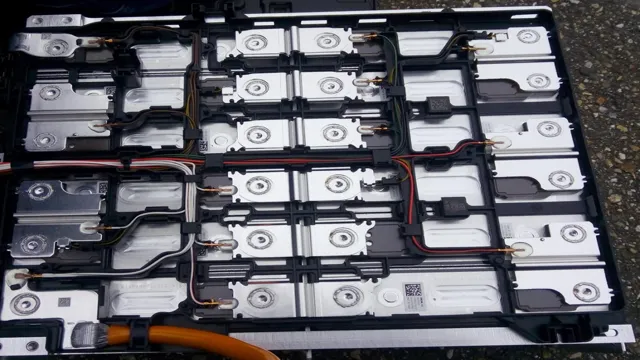
Thorough Testing Processes
Thorough Testing Processes Electric car batteries have come a long way in terms of safety. The technology behind these batteries has been evolving rapidly over the last few years, with new advancements that make them safer and more reliable than ever before. One of the key factors that make electric car batteries safe is thorough testing processes.
Manufacturers put electric car batteries through a rigorous testing process to ensure that they are safe to use on the road. These tests are designed to simulate real-world driving conditions and events to ensure that the battery can withstand whatever challenges it might face. For example, the batteries are tested to see how they perform in extreme temperatures, both hot and cold.
They are also tested for their resistance to impact and vibration, which can be especially important in the event of a collision. Additionally, manufacturers conduct tests to evaluate the battery’s risk of fire or explosion. Furthermore, electric car batteries are equipped with safety features that help to prevent any problems from occurring.
These safety features include built-in thermal management systems that monitor the battery’s temperature and regulate it to prevent overheating. There are also electronic systems that constantly monitor the battery’s health and status, alerting the driver if any issues arise. In conclusion, electric car batteries have become incredibly safe thanks to advances in technology.
Thorough testing processes play a vital role in ensuring that these batteries can withstand a variety of driving conditions and are equipped to handle any potential safety concerns. As more people embrace electric vehicles, these batteries will continue to evolve, becoming even safer and more reliable in the years to come.
Highly Regulated Industry
Electric car batteries are designed to be safe and reliable to ensure public safety. The electric car industry is highly regulated, with strict safety standards in place to ensure that batteries meet rigorous safety standards. Battery manufacturers go through detailed safety testing, including simulations and tests to ensure that the batteries are able to withstand crashes, high temperatures, and other potential accidents.
Materials used in batteries are also carefully selected to ensure that they are less prone to catching fire, overheating, or exploding. Electric car batteries use high-quality materials, such as lithium-ion, which are known for their stability and reliability. In addition, electric car manufacturers have implemented a range of safety features to protect drivers on the road.
Features such as automatic shutoffs, coolant systems, and battery management systems help to reduce the risk of battery failure and ensure that electric cars are safe for drivers and passengers alike. Overall, electric car batteries are designed with safety in mind, making electric vehicles a safe and reliable alternative to traditional gas-powered cars.
Potential Risks and Concerns
When considering electric car technology, one of the main concerns is battery safety. Although electric cars are generally considered safer than gasoline-powered cars due to lower risk of fires and explosions, there is still a risk of thermal runaway in electric car batteries. This happens when the battery overheats and causes a reaction that can lead to an explosion.
To combat this, electric car manufacturers use complex battery management systems to monitor and regulate the temperature of the batteries. Additionally, emergency response officials are being trained to deal with electric car accidents and are provided with specialized equipment to handle potential battery thermal events. Despite these safety measures, it is important to remain cautious and continue to develop better technologies to ensure electric car battery safety.
Fire Hazards
Fire hazards can cause significant damage to property and risk the safety of individuals in the vicinity. Some potential risks and concerns relating to fire hazards include overloaded electrical circuits, smoking indoors, leaving cooking unattended, flammable materials, and lack of fire safety equipment. Electrical circuits that are not properly maintained or overloaded can cause sparks that ignite fires.
Smoking indoors can be dangerous, especially when combined with flammable materials such as curtains or furniture. Unattended cooking can also cause fires, especially if there is grease or oil involved. Flammable materials should be kept away from heat sources such as stoves or heaters.
Lack of fire safety equipment such as smoke detectors or fire extinguishers can make it difficult to control the spread of fire. Therefore, it is crucial to be vigilant and take preventive measures to reduce the risk of fire hazards. By staying aware of potential hazards and taking precautions such as regular electrical maintenance and having fire safety equipment, we can ensure the safety of our homes and workplaces.
Chemical Exposure Risks
Chemical exposure risks are a growing concern in the modern world as we are exposed to a wide range of substances. Chemicals are used in everything from cleaning products to food packaging, and it is difficult to avoid them entirely. Some chemicals can cause immediate harm, while others may have long-term effects that are not immediately noticeable.
Exposure to certain chemicals can cause respiratory and skin problems, neurological issues, and even cancer. It is important to be aware of the potential risks of exposure and take steps to minimize them as much as possible. This can include using protective equipment when handling chemicals, choosing natural cleaning products, and carefully reading product labels to avoid harmful substances.
By being proactive about chemical exposure, we can help protect ourselves and our families from potential harm.
Risk of Thermal Runaway
When it comes to lithium-ion batteries, thermal runaway is a potential risk that consumers should be aware of. Thermal runaway occurs when a battery overheats and creates a positive feedback loop, releasing more energy and heat, which causes further heating and energy release. This can eventually lead to the battery catching fire or exploding.
This risk is present in all lithium-ion batteries, but it is more pronounced in larger batteries used in electric vehicles, power tools, and other similar applications. While manufacturers take steps to prevent this from happening, it is important for consumers to use these batteries responsibly and follow proper storage and charging procedures to minimize the risk of thermal runaway. Always buy batteries from reputable brands and authorized dealers to ensure their safety and quality.
Steps to Stay Safe
As the popularity of electric cars continues to grow, it’s important to remember the importance of electric car battery safety. Knowing how to properly handle and maintain an electric car battery can help prevent potential accidents and keep you safe while on the road. One important step is to always follow the manufacturer’s instructions for charging and handling the battery.
Avoid leaving the battery charging overnight or while unattended and don’t use damaged charging equipment. It’s also important to avoid exposing the battery to extreme temperatures or weather conditions, as exposure can cause damage to the battery or even lead to a fire. By following these simple steps and staying vigilant about electric car battery safety, you can enjoy all the benefits of electric vehicle ownership while staying safe and secure.
Regular Maintenance and Inspections
Regular maintenance and inspections are essential for maintaining a safe environment for ourselves and those around us. Whether it’s our car, home, or workplace, staying on top of maintenance tasks can help prevent accidents and injuries. When we neglect to inspect or maintain our equipment, it can lead to malfunctions or breakdowns, which can cause harm to ourselves or others.
That’s why it’s crucial to follow the manufacturer’s instructions and schedule regular maintenance checks. By doing so, we can identify and fix issues before they become more serious problems. For instance, think about the last time you had your car inspected.
By taking it to the mechanic regularly, they can catch problems early on, such as worn-out brakes or a failing transmission, before they become a hazard on the road. Remember, safety should always come first, so don’t neglect your regular maintenance duties!
Proper Charging Practices
When it comes to charging your devices, there are a few steps you can take to ensure you stay safe. Firstly, only purchase chargers from reputable sources. Cheap knockoff chargers can cause damage to your devices and even be a fire hazard.
Secondly, avoid overcharging your devices. While it may be tempting to leave your phone charging overnight, overcharging can cause damage to the battery and also poses a fire risk. Thirdly, keep your charging area tidy and uncluttered.
Avoid placing chargers near flammable items and ensure that they are not tangled or twisted. Finally, always keep an eye on your device while it is charging. If it starts to heat up or emit a strange smell or noise, stop using it immediately and seek professional advice.
By following these simple steps, you can ensure that you stay safe while charging your devices.
Conclusion
In conclusion, electric car battery safety isn’t a shocking topic. With proper precautions and maintenance, electric car batteries can power us into a bright and sustainable future. Just like any regular car, safety is key, but with electric cars, the added benefit of emissions reduction and quieter rides makes for a truly electrifying experience.
So, let’s charge ahead and embrace the power of electric car batteries, keeping safety at the forefront of our minds and always ready to take a charge.”
FAQs
1. What safety measures are in place to prevent electric car battery fires? A: Electric car batteries are designed with multiple safety features such as battery thermal management systems, battery safety shields, and battery enclosures to prevent fires. In addition, manufacturers conduct extensive testing to ensure the safety of the battery packs. 2. Can electric car batteries be recycled? A: Yes, electric car batteries can be recycled. The recycling of batteries reduces the amount of toxic materials ending up in landfills and conserves valuable materials like lithium and cobalt. 3. What is the lifespan of an electric car battery? A: The lifespan of an electric car battery can vary depending on factors like usage patterns, charging behavior, and environmental conditions. Generally, an electric car battery can last anywhere from 8 to 15 years with proper maintenance and care. 4. Are there any risks of electric car batteries exploding? A: The risk of electric car batteries exploding is extremely low, especially when compared to traditional gasoline-powered vehicles. Electric car batteries are designed with safety mechanisms to prevent explosions and manufacturers conduct extensive testing to ensure their safety.
